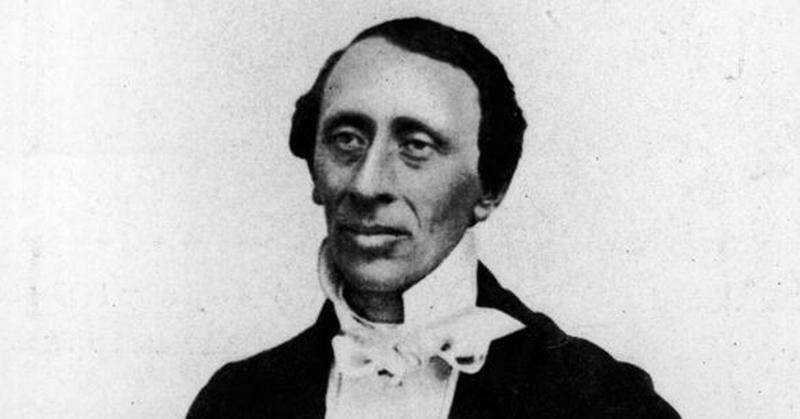Fun Facts About Famed Writer Hans Christian Andersen
By | November 21, 2022

Hans Christian Andersen
Hans Christian Andersen was born on April 2, 1805 just outside of Copenhagen, Denmark. His family was deeply impoverished, but a mentor he met through his dalliance with theater paid for his education. Though he suffered significant abuse at the hands of his headmasters, he went on to become one of the most acclaimed children's writers of all time, creating timeless stories like The Little Mermaid, Thumbelina, The Emperor's New Clothes, The Princess And The Pea, and many more.
His Stories Were Based On His Own Life
Given the struggles of his young life, it's no wonder that Andersen often drew on his own woe to fill his many fables. For instance, The Ugly Duckling was inspired by his own experiences with bullying growing up. He wanted to give other children struggling with low self-esteem the hope of turning into beautiful swans.

He Was Celibate
Andersen was perhaps himself in a state of arrested development, as he not only never married or fathered children but may have never gotten around to doing the deed at all despite visiting the occasional brothel. Throughout his life, evidence suggests he had romantic feelings toward many women and some men but rarely acted on them, choosing instead to keep a surprisingly thorough diary of his own, um, self-exploration, marking every occasion with a little cross and an entry of who he desired at the time.
He Was Scared Of Lots Of Things
Andersen had many phobias and neuroses. He was so afraid of fires that he carried an escape rope with him when he entered tall buildings, refused to eat ham out of fear of parasites, and even avoided dogs. His greatest fear, though, was being buried alive, the idea of which disturbed him so deeply that he made a note every night before bed to alert anyone who found him that he was merely sleeping and not dead.

He Was A Terrible Houseguest
Andersen met Charles Dickens at a party in 1847, and much to his delight, this led to a long correspondence between the two famed authors. In one of the letters, Dickens offered his home if Andersen ever happened to be in the area, likely out of mere politeness, but Andersen took this to heart and scheduled a two-week visit. During that time, Dickens was baffled by Andersen's adherence to Danish customs, like insisting on being shaved by one of Dickens's sons, and his personal idiosyncrasies, like his tendency to openly weep and paranoia of pickpocketing. Even his affinity for arts and crafts annoyed Dickens to no end. It didn't help that Andersen overstayed his planned visit by three whole weeks. When he left, he tried to apologize for what he knew had been a bad time, but Dickens only sent him one final letter to say goodbye, and their relationship, to quote the Christmas Carol scribe, was dead as a coffin nail.
He's Dearly Beloved In His Home Country
Despite his many eccentricities, Andersen remains greatly acclaimed, especially in his homeland of Denmark. Just a few months before his death, he was given a large bronze statue of himself, which still stands in the King's Garden, by the city of Copenhagen for his 70th birthday. It's just one of many statues of Andersen in Denmark and around the world, including an oversize monument in New York City's Central Park, where children are often found playing and climbing.

